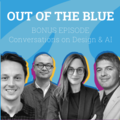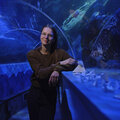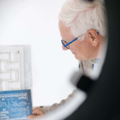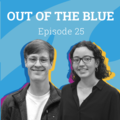News
26 October 2022
Nigerian delegation visits NWO INSPiRED project
Last Thursday, a delegation from Nigeria visited the NWO INSPiRED project at IDE. Representatives, which included members of the Nigerian government were updated on the progress of the digital diagnostics device for Neglected Tropical Diseases being developed at IDE & 3ME. Project lead J.C. Diehl and PhD Prosper Oyibo offered a demonstration of the Schistoscope. The device was tested and evaluate last summer in Nigeria. The results have since been published in two scientific publications.
26 October 2022
Delft Academic Shop (DA-SH) to close its doors as of 31 December
We are sad to announce that the Delft Academic Shop (DA-SH) will be closing its doors as of 31 December. In the coming weeks it will still be business as usual, besides some limitations on reordering items. Orders for out-of-stock items and gift certificates can be placed until 2 December. After that, only cash payment or payment by pin-credit card will be possible.
13 October 2022
IDE in the media – week 41
11 October 2022
IDE contribution to World Guidelines for Fall Prevention
Falls become increasingly common as we get older. They can be devastating for older people from a psychological and physical perspective, resulting in loss of confidence, loss of independence, pain, injury, depression and even death.
06 October 2022
Out of the Blue #26: Conversations on Design & AI

We have a fun one for you this time. Recently, our colleague Eric Gu hosted three Delft Design researchers in a conversation on design and AI. Alessandro Bozzon, Maria Luce Lupetti and Kars Alfrink talked about the needs and challenges of designing AI. About the role of the designer in its development and how the design practice itself can change through the relationship with AI.
05 October 2022
The expanding design universe

AI is turning static products into dynamic ones that change while we use them. This requires new design methodologies. The European network and PhD programme DCODE, coordinated from the TU Delft Faculty of Industrial Design Engineering, is all about rethinking the future of design in a world full of AI.
04 October 2022
Could oysters hold the pearl of wisdom for reef restoration?

A TU Delft Master’s project tries to make large-scale reef restoration possible with a pilot project to re-establish oysters in the North Sea.
29 September 2022
Knowledge sharing platform CIRCONNECT goes live
Last week, fifteen organisations, including IDE (represented by our Design for Sustainability and Circular Product Design sections), celebrated the launch of CIRCONNECT – an online knowledge platform for circular design. The platform will act as a central location where knowledge and experience in the field of circular design is shared and developed together. The website already contains nearly 100 knowledge contributions from the CIRCONNECT partners. The contact person for this project is IDE’s Bas Flipsen.
29 September 2022
Design United at Dutch Design Week 2022
Dutch Design Week (DDW): it’s one of the highlights of the European design calendar and an event in which IDE design research plays a prominent role together with 4TU.Design United. This year, DDW runs from 22-30 October and as is tradition, you can expect a stellar programme from Design United featuring researchers and projects from IDE and TU Delft. Keep your eyes peeled for the next newsletter, where we'll cover what else you can expect from Dutch Design Week.
29 September 2022
IDE in the media – week 39
22 September 2022
IDE in the media – week 38
15 September 2022
IDE in the media – week 37
13 September 2022
Soft Robotics Summer School 2022
Just before the 2022/2023 academic year began, TU Delft hosted the Soft Robotics Summer School for PhD students. The two-week course, which ran from 22 August to 2 September, featured a riveting schedule, which included talks by IDE researchers Jun Wu, Zjenja Doubrovski, Sepideh Ghodrat, Jiwei Zhou, and Guoxin Gang; and two workshops in IDE’s Applied Labs.
13 September 2022
From bottled water to doctor

Most people, according to PhD candidate Mirjam Visser, say they want to shop sustainably but few consumers actually purchase the most environmentally-friendly option when shopping. For her thesis research, she set out to understand why some consumers will buy green options while others won’t - and how to encourage people to make more sustainable choices.
12 September 2022
Looking back at the Visual Science of Art Conference 2022
Did you get a chance to attend the 2022 Visual Science of Art Conference (VSAC) in Amsterdam? If not, don’t worry. We’re here to tell you all about it. The conference took place from 24 – 27 August in and around Amsterdam’s Oudemanhuispoort. Its aim was to bring together artists and scientists who shared an interest in the visual aspects of art. The result? 130 scientists and artists from 20 countries gathered for a four-day event. The conference was co-organised by members of IDE’s Perceptual Intelligence Lab (Maarten Wijntjes, Jeroen Stumpel, Catelijne van Middelkoop, Cehao Yu, and Yuguang Zhao) and the University of Amsterdam’s Art History department.
12 September 2022
TU Delft course wins Outstanding Security Training Initiative prize
At this year’s Outstanding Security Performance Awards (OSPAs), the TU Delft Risk Management Summer Course took home the Benelux OSPAs’ Outstanding Security Training Initiative award. This year’s edition of the course was organised by IDE’s Sicco Santema, alongside IDE alumna Rinske Geerlings and TU Delft strategic risk advisor Regina Edoo. Of all the nominees in this category, Santema’s group was the only one to be nominated by the participants.
08 September 2022
IDE in the media – week 36
07 September 2022
Master's student from TU Delft wins the Netherlands’ James Dyson Award 2022
IPD master’s exchange student Konstantin Wolf took home the 2022 James Dyson Award (the Netherlands) with his invention BREATHE. Konstantin, who was on exchange from Muthesius University Kiel, spent six months at IDE. During which, he was able to bring his award-winning invention to the prototype phase. BREATHE was developed as a passive and sustainable ventilation solution to improve indoor air quality in small living spaces and to meet the needs of the growing Tiny House community.
07 September 2022
IDE graduate student awarded B-Part Fellowship
IDE graduate student Anne Arzberger was chosen to be a part of the ASME’s Design Engineering Division’s (DED) Broadening Participation (B-Part) Fellowship and Mentorship Program. As part of the fellowship, Anne received a travel scholarship that covered her costs to go to the ASME IDETC-CIE Conference (St. Louis) and gave her the opportunity to present a research proposal at a poster session for early-career graduate students.
06 September 2022
The many angles of technology and human centred design

From an early career in experimental psychology to Professor of Informational Ergonomics at TU Delft’s Faculty of Industrial Design Engineering (IDE), Professor Huib de Ridder has learned that there are a lot of ways to look at things. But one point has always remained central: it all begins with the human.
06 September 2022
Helping designers give UX insights a longer life

Once a designer is no longer actively involved in the development process, UX insights are often neglected, reducing the UX quality of the product or service. This phenomenon inspired Lilian Henze’s PhD research into how designers can prevent it from happening and actually facilitate the use of UX insights in the entire development process
01 September 2022
IDE researchers win Best Paper Award in New York
IDE Professor Pieter Desmet and Assistant Professor Haian Xue, alongside researchers Xin Xin and Wei Liu from Beijing Normal University took home the award for Best Paper in the Creativity, Innovation and Entrepreneurship category at this year’s Applied Human Factors and Ergonomics Conference 2022 in the US. Their paper is entitled: "Emotion deep dive for designers: Seven propositions that operationalize emotions in design innovation".
01 September 2022
IDE in the media – week 35
01 September 2022
Caspar Chorus on moving in with the neighbours
31 August 2022
Out of the Blue #25 - International students of Delft Design – Yuka & Jack

It’s been a long and well-deserved summer break. Before we headed off, we had a lovely chat with two international student editors of IDE. Yuka & Jack already share their experiences as international students as student editors on the IDE website. For this bonus episode, they talk with Ianus and Producer Marc about work-life balance, what’s it like studying Delft Design and much more. Enjoy! We will be back with our final episode on design & health soon.